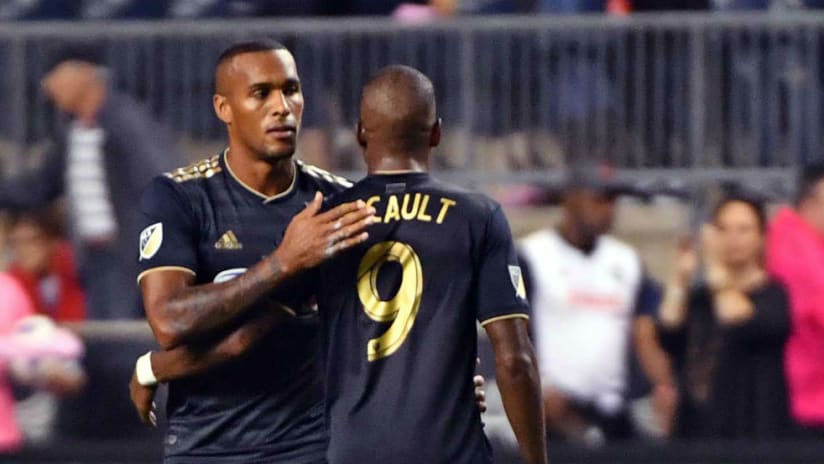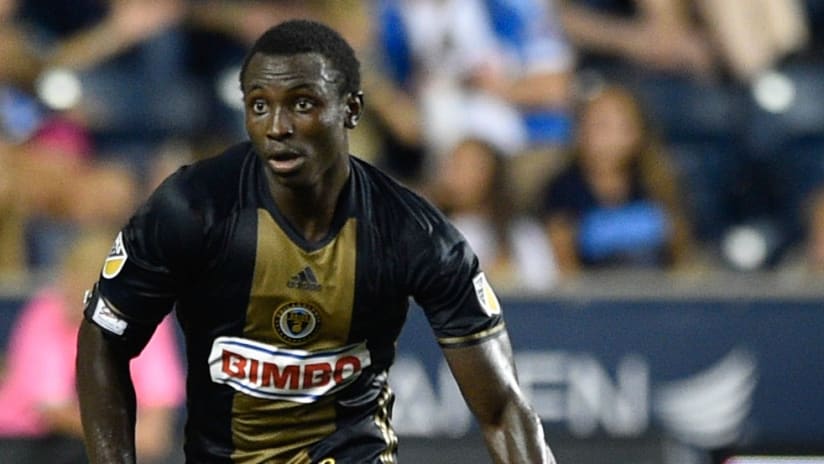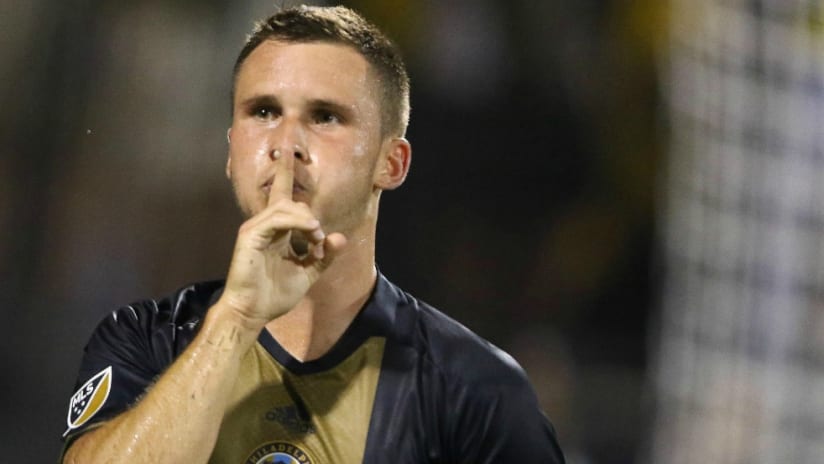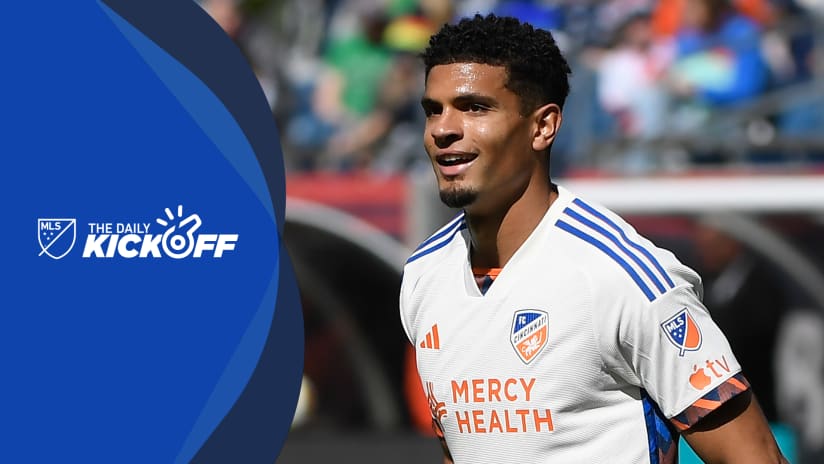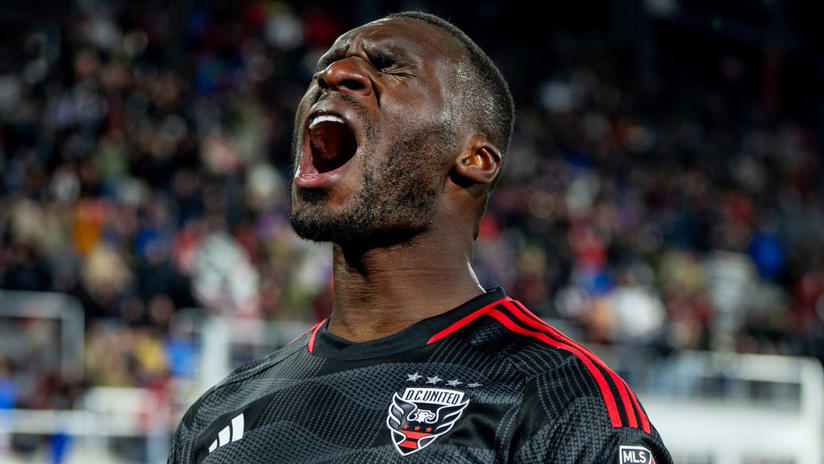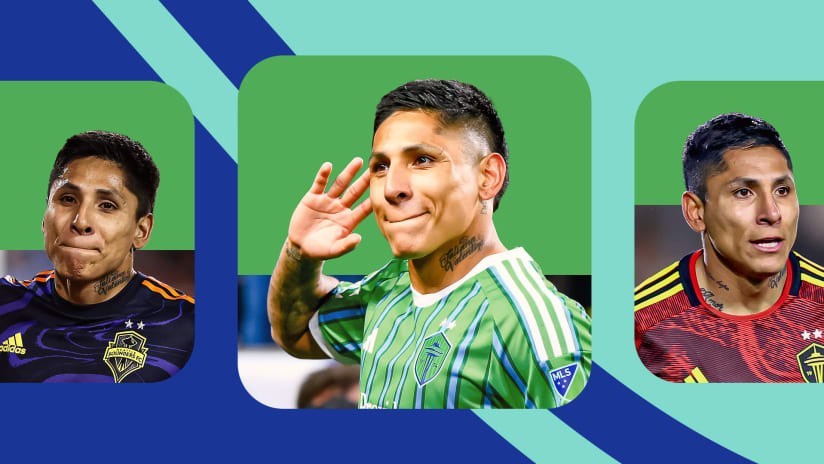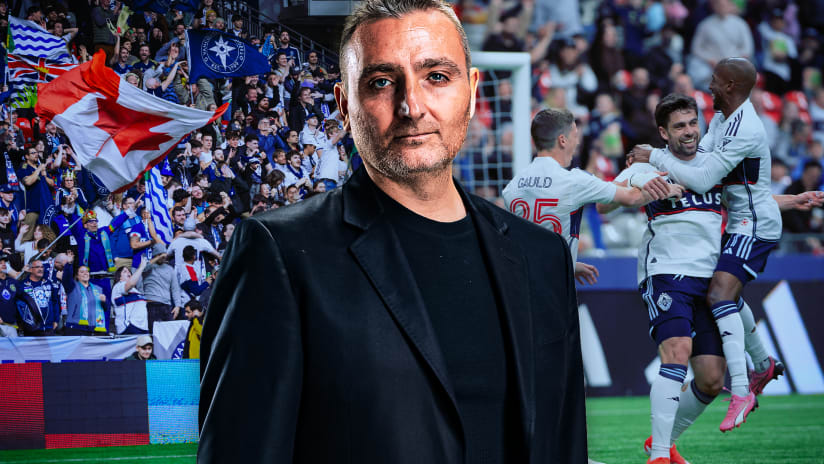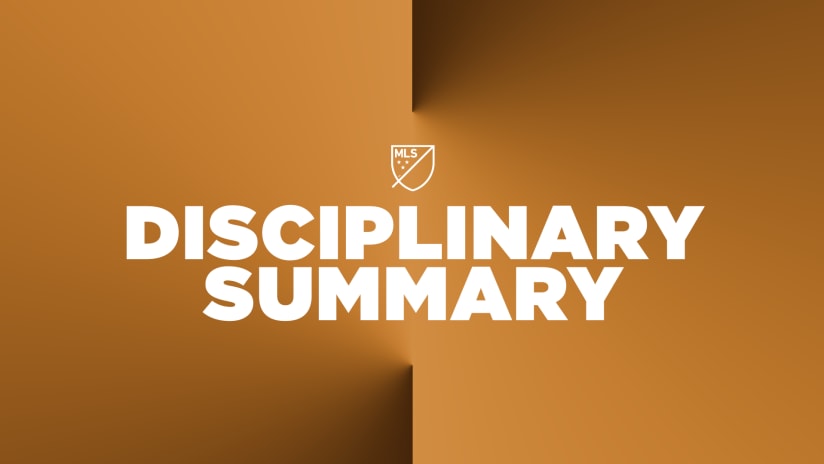The nation's top college soccer players are duking it out on the field for clubs’ attention at the 2016 adidas MLS Player Combine this week in Fort Lauderdale, Florida. Off the field, though, we caught up with some of the brightest prospects in the upcoming SuperDraft to find out a little bit more about what makes them tick.
Josh Yaro, a defender from Georgetown, makes for one of the most interesting of the bunch. He signed with Major League Soccer last week as part of the new Generation adidas class, an opportunity he considered last year — but turned down, in order to advance as far as possible on his double major.
Smart on and off the pitch, the Big East Defensive Player of the Year has been tapped by many as a possible No. 1 pick at the SuperDraft.
He started playing club soccer because of a little sibling jealousy.
Yaro is the youngest of four chidren in the family, with an older sister and two older brothers. He started playing street soccer in his native Ghana but didn’t consider anything more serious until he wanted to catch up to his brothers.
“I remember coming home one day and they had cleats and everything, and I didn’t get them, so I wanted them too, out of jealousy.
So my dad got them for me, even though I didn’t play soccer then. One of my friends saw that I had that stuff, and he played at a club, and he encouraged me to try out because he was like, ‘You have these nice cleats, you should use them. Come and try out.’”
Soccer isn’t what brought him to the States, though — academics did.
His parents, former heads of schools in Ghana, sent him to a small boarding high school outside of Santa Barbara, the Cate School.
“I was really far from my family, and the school provided me with family. That’s why I say I technically live in Santa Barbara, because when I can’t go home to Ghana on breaks, I stay there. It’s been about a year and a half since I’ve been able to go back to Ghana.”
His boarding school wasn’t known for athletics, but he helped change that.
“It’s a really good private school, but it’s not known for sports — there are only about 270 kids there. But interestingly enough, our soccer team starting picking up. We ended up winning our division, and we went on to win the CIF, which is California Interscholastic Federation, the biggest trophy you could win in California for our division. For me, that was a really nice, good moment: to see what the soccer program used to be, and what it was after I graduated. It’s come a really long way.”
By the time Georgetown approached him, he had almost made up his mind to attend another school.
“I went to a soccer camp hosted by Yale and Wesleyan in Connecticut, and I became really close with my coach there, who coached D3. He told me he knew I wasn’t going to play D3, but if I ever needed help with the college process, to let him know.
As it turned out, he had played with my Georgetown coach, who called him up and said he needed a center back for 2013, and did my camp coach know anyone? Fortunately he recommended me.
In the recruiting process, Georgetown came up really late, and when I first got an email from the coach, I was already close to making my decision and didn’t think I would consider that school. But that’s where I ended up going. Georgetown had never even seen me play.”
His latest academic passion is medical anthropology.
He delayed signing a Generation adidas contract until the last possible college semester, so he can still pick up with his double-major degree at Georgetown in the future.
“I went into Georgetown knowing I wanted to study international relations, but then I was picking out classes for the fall, and I read a course description of a medical anthropology class. I wound up getting really into it and after four or five classes, figured, why not double major?
What I’m really interested in is looking at different medical belief systems, like biomedicine and folk medicine. Each country has a different way they classify illness and disease. So what a medical anthropologist would do is try and understand the cultural background of a person and what they believe in, and help a medical professional best treat that.”
Here’s a reading recommendation.
“There’s a really famous book called, The Spirit Catches You and You Fall Down. It’s a family that migrates to the US, and the daughter is epileptic. The family thinks it’s a spirit that catches your soul and that’s what causes illness, and their new doctor in California tells them, ‘No, this is what it is, and this is how you treat it.’
Long story short, the doctor and the family couldn’t agree on the treatment. A medical anthropologist then came in to bridge that gap. So that’s kind of what I’m interested in: trying to understand the cultural differences and trying to bridge that difference to better provide health care to different groups of people.”
Despite all the hype, he likes to stay cool and collected.
“As much as I can, I try to stay calm. Everyone’s trying to speed up and is super giddy on the field, but that’s one of my strengths.”
On the field, his all-time soccer idol is Rio Ferdinand.
“I grew up watching him, and he’s a center back, and has same style – he’s calm, he has good vision. Also, I got to meet him in Manchester in a tournament in 2008.
I was sitting, and one of my friends goes, ‘Josh, look behind you, you won’t believe who’s coming.’ I had no idea he was going to be there that day, and I saw him walking up. I finally went up and I got to shake his hand and get a picture. I didn’t say anything; I just went blank and shook his hand. But it was super cool.”
One of his friends from home also entered MLS through Generation adidas.
“When I first got to here in 2010, I did not really know a lot about MLS. But one of my friends from Ghana signed a GA contract in 2011 for the Sounders – Michael Tetteh. They were playing the LA Galaxy, so I went down for it from Santa Barbara, and then I went from there, learning about the league.”
Yaro also boasts a photographic memory, so don’t think he’s not paying attention.
“When I sit in class, I don’t take notes. I just sit there and listen, and it looks like I’ve forgotten everything, but when it comes to a test, I can remember everything. I have a 3.7 GPA. On the field, it helps because I have a good sense of what’s happening around me.”
Other MLS Hopefuls
Andrew Tarbell, Clemson GK
Brandon Vincent, Stanford LB
Kyle Fisher, Clemson CB
Jonathan Campbell, North Carolina CB


